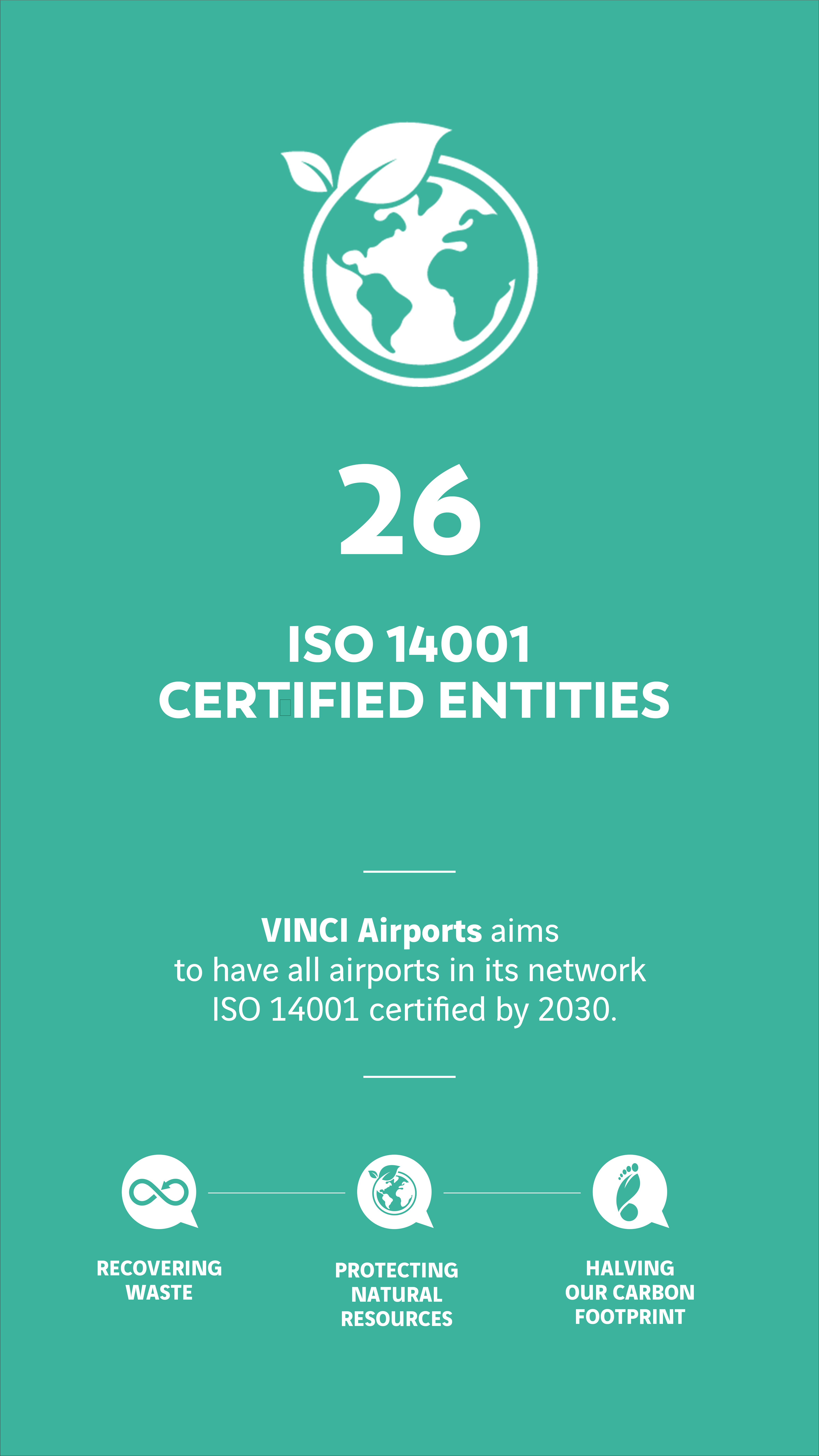
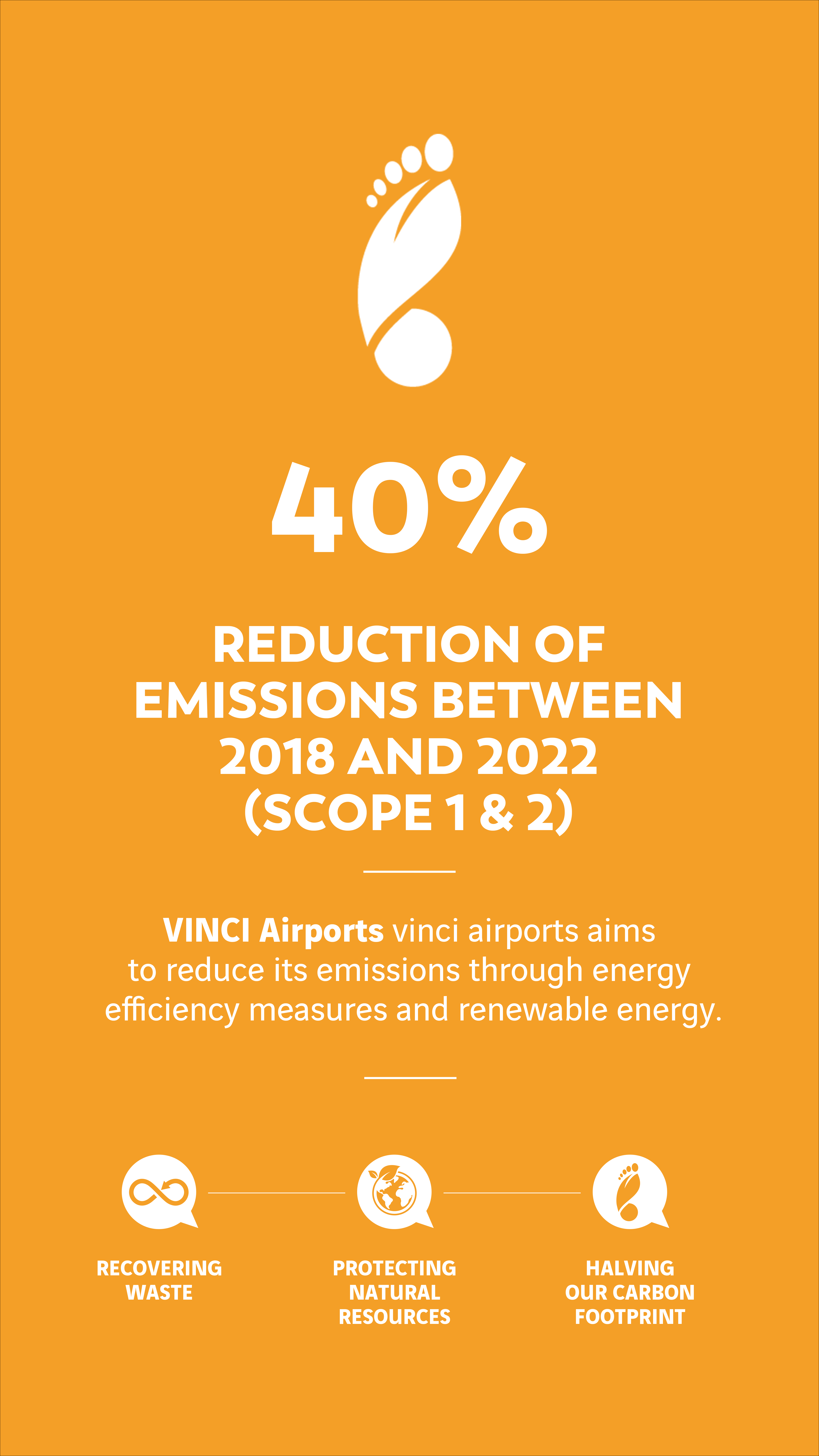
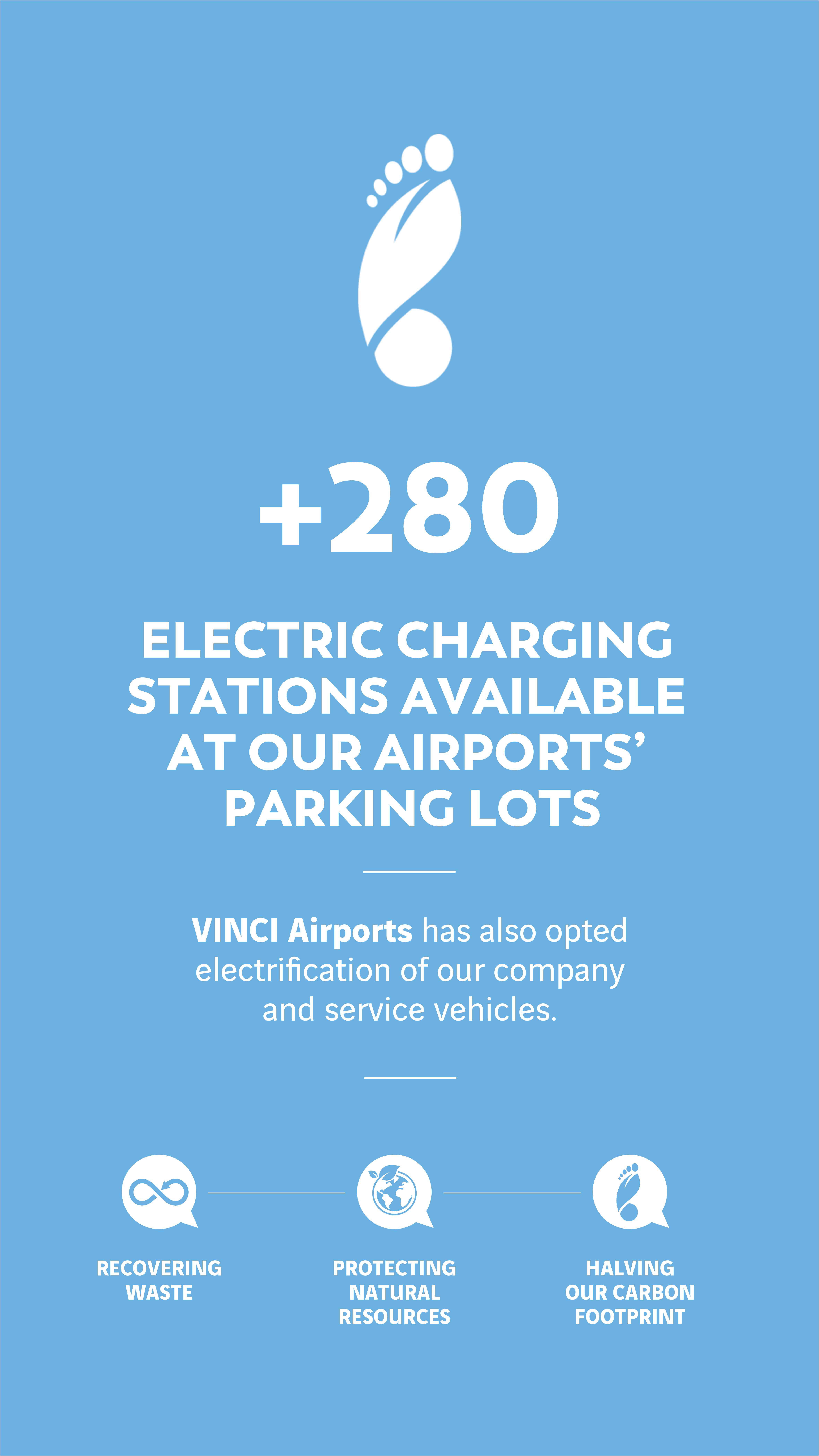
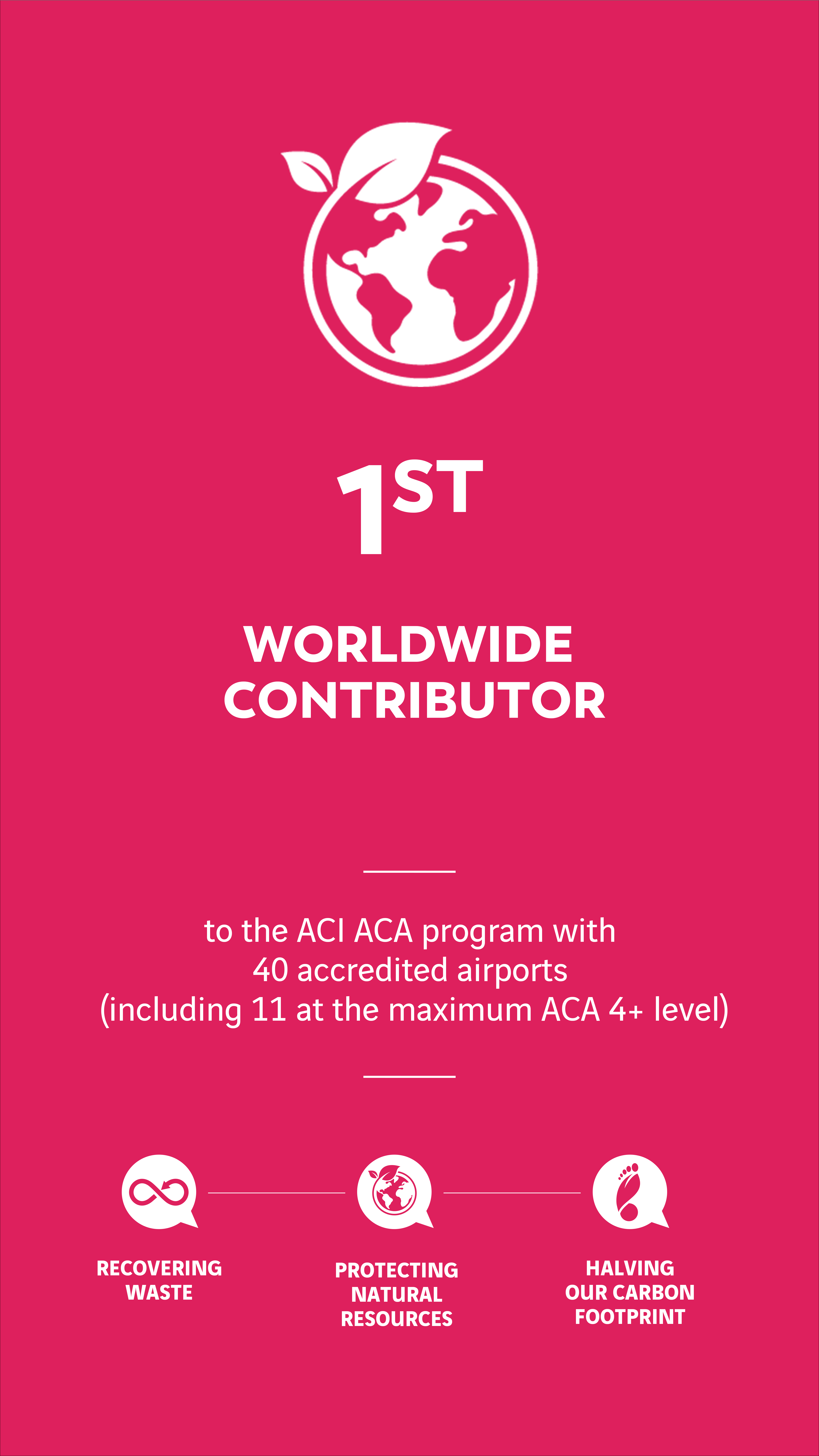
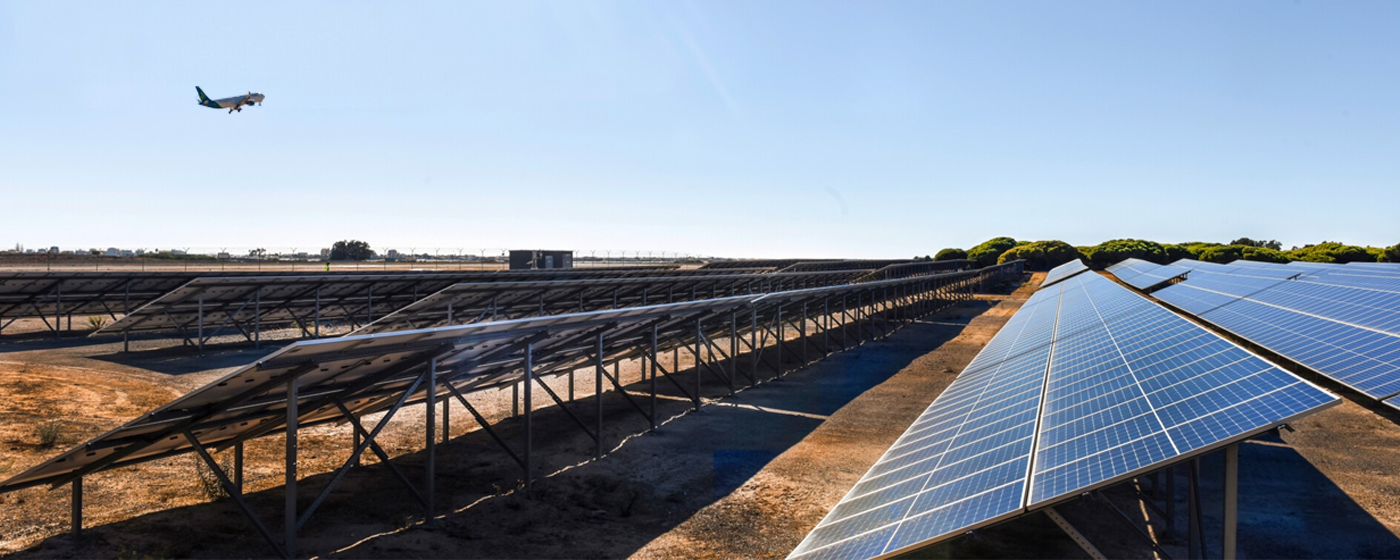
We are committed to increase our energy efficiency by using state-of-the-art lighting technologies. Therefore, we install LED lamps for the lighting of all our airports.
At the beginning of the year 2021 for instance, Cambodia Airports completed large-scale relamping works. LED lights were installed to enlighten the 3,300-meter runway of Sihanouk International Airport. This helps reduce electricity consumption and therefore the carbon footprint of the airport significantly.
We are developing our expertise in solar power solutions, which we operate both for our own infrastructures and for companies and local authorities.
In 2022, several airports will be commissioning their photovoltaic parks. In Serbia, the solar power plant at Belgrade airport was delivered with 3,000 photovoltaic panels that will supply the airport with 1,200 MWh of energy per year, avoiding 900 tonnes of carbon emissions. In Faro, Portugal, VINCI Airports inaugurated the country's first airport solar power plant in September 2022. With a capacity of 3 MWp, it covers 30% of the airport's electricity needs, reducing its CO2 emissions by more than 1,500 tonnes a year. The plant is financed, developed, built and operated by SunMind, a VINCI Concessions subsidiary dedicated to photovoltaics. This achievement marks a new stage in VINCI Airports' environmental action plan in Portugal.
More recently, VINCI Airports announced the launch of a 14-hectare solar power plant at Lyon-Saint Exupéry airport, covering 5,800 parking spaces. One of the largest solar shading plants in France, with a capacity of 20 MWp, it will produce 24 GWh of green electricity annually, equivalent to the consumption of 9,000 inhabitants. Its production will be fed into the grid to supply the surrounding communities, avoiding the emission of almost 1,600 tonnes of CO2 per year.
In this long journey of decarbonation, were we also want to be an inspiration to others, we opt for electric mobility and electrify our company and service vehicles. Thus, London Gatwick airport put in place a fleet of electric airport shuttle cars and offers a car sharing station with a 100% percent electric vehicle fleet. Furthermore, easily accessible charging stations were implemented, so that drivers of electric vehicles can easily charge them during their stay at the airport. In the Dominican Republic, Aerodom took up this spirit towards more sustainable mobility by also installing charging stations for EVs at Santo Domingo airport.
Derived from renewable organic matter, sustainable second-generation biofuels, or "SAF", save 80% of greenhouse gas emissions compared with conventional fossil fuels used in air transport. Their use requires no major modification of aircraft engines or airport infrastructures, and they can already be used in blends with conventional kerosene. In the short term, they represent a decisive asset for the decarbonization of aviation. VINCI Airports is a pioneer in promoting this immediate-impact solution.
First to make them available in France, at Clermont-Ferrand airport, VINCI Airports has also just deployed them at Grenoble and Toulon Hyères airports. Several flights incorporating SAF have also been organized for 2022 at London Gatwick, Lisbon, Porto and Lyon-Saint Exupéry, and a partnership has been signed to deploy them at Kansai airports in Japan.
The integration of SAF enables us to meet the needs of any airline, depending on its level of decarbonization ambition. Finally, the introduction in France of carbon modulation of landing fees, a world first launched by VINCI Airports to encourage fleet renewal, also encourages the use of SAF. Under this incentive scheme, companies using SAFs will see their landing fees lightened, via an SAF discount system. Decarbonizing aviation is a partnership effort, in which all players play their part across the entire value chain.
Achieving "zero net emissions" for the scope of our activities (scopes 1 & 2) requires, after having reduced emissions as much as possible, sequestering residual emissions from infrastructures. This is the objective of the forest carbon sinks in which VINCI Concessions invests, aiming to absorb these emissions through low-carbon label reforestation programs, notably in France, located in the area of direct influence of the network's concessions and which are also useful for biodiversity. In addition, VINCI Airports will offer airlines wishing to do so the possibility of using these labelled projects to meet all or part of their offsetting obligations for French domestic flights under a provision of the 2021 Climate and Resilience Act.
In France, Toulon Hyères and Lyon-Saint Exupéry airports are aiming to become the first French airports to achieve zero net CO2 emissions within their perimeter (scopes 1 & 2), by 2023 and 2026 respectively. To sequester the residual emissions from these two airports, VINCI Airports has launched two local reforestation programs in Lyon with the Rhône département and the Office national des forêts, which have been awarded the Label bas-carbone. It has also just signed a partnership with the Rhône Chamber of Agriculture to develop projects to reduce and sequester greenhouse gases, using its new large crops method. Ten volunteer farms in the eastern Lyon area will carry out diagnoses to identify the most effective levers for reducing greenhouse gas emissions and promoting soil carbon storage. For its part, Toulon Hyères airport has launched a reforestation project for the Lavandou municipal forest, alongside the Provence-Alpes-Côte d'Azur region, the Office national des forêts, the Communauté de communes Méditerranée Portes des Maures and the Lavandou municipality.
Lastly, VINCI Airports has also signed a partnership with Néosylva in 2022, aimed at launching 150 hectares of reforestation over a 30-year period in the Brittany, Pays de la Loire and Auvergne-Rhône-Alpes regions, which should make it possible to sequester 100 to 300 tonnes of CO2 per hectare.
Committed to supporting the development of the hydrogen industry, VINCI Airports is pursuing its action plan, with the forthcoming opening of its first hydrogen gas station at Lyon-Saint Exupéry, a hydrogen bus service at Kansai International Airport, a partnership with Air Liquide, Copec and Colbún at Santiago Airport, and a hydrogen-powered airport operating fleet project at Portugal's airports.
Learn more about VINCI Airports' commitment to the international ACA program by clicking here.



